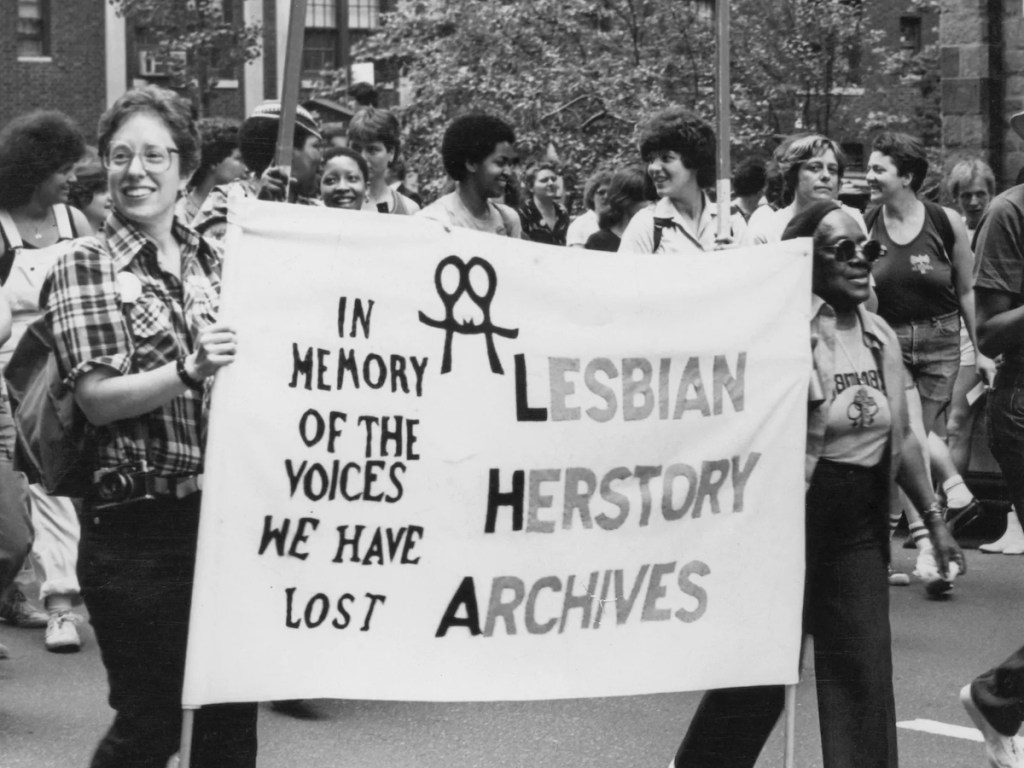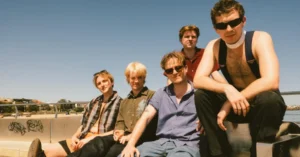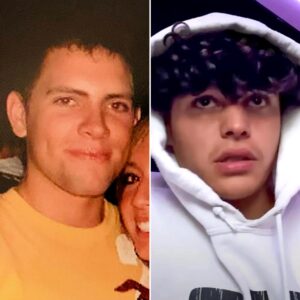An Archive of Lesbian History Right in the Heart of Brooklyn



This article is part of Hyperallergic’s 2025 Pride Month series, spotlighting moments from New York’s LGBTQ+ art history throughout June.
A rich collection pertaining to lesbian life, activism, and scholarship hides in plain sight in Park Slope, nestled between the residential brownstones about a stone’s throw away from Prospect Park. The Lesbian Herstory Archives (LHA), which was born out of an Upper West Side apartment in 1974 and landed in the Brooklyn neighborhood in the early ’90s, is the world’s largest selection of materials by and for anyone who identifies with the term lesbian.
The birth of the archives is attributed to a handful of lesbian scholars — including Deborah Edel, Joan Nestle, Sahli Cavallaro, Julia Stanley, and Pamela Oline — who were active in the Gay Academic Union in the early ’70s, and found that it was simultaneously unsafe and futile to seek out Sapphic research materials in institutional collections at the time. The original location was Nestle and Edel’s shared apartment on 92nd Street, but the collection had far exceeded the tight space after its first decade, necessitating the purchase of its new headquarters on 14th Street in Brooklyn. At the time, Park Slope had a lively community of lesbian residents and was affectionately nicknamed “Dyke Slope,” though LHA and Ginger’s Bar are among the last devoted spaces to lesbians in the neighborhood.


Since its inception, the LHA has steadfastly avoided government funding to maintain its grassroots foundation, and a rotating live-in caretaker has always overseen the collections to keep the space feeling like a home. The collections and their maintenance are funded by individual lesbians, donations from visitors, private grant provisions, and like-minded independent organizations.
With tens of thousands of recorded objects on- and off-site, the archives boast different collections of domestic and international periodicals, magazines, and newspaper clippings; literature and poetry; posters and banners; T-shirts, prints, and buttons; zines, flyers, and underground publications; biographical and geographical publications; activism-based ephemera; journals and other scholarly work; biographical files on prominent and underrepresented lesbian scholars, critics, and activists; spoken word tapes and video files; pulp fiction, smut, and pornography; and other related memorabilia.


During an onsite tour, volunteer coordinator Nora Della Fera pointed Hyperallergic toward a colorful selection of independently published and archived adult magazines, including On Our Backs (1984–2005), known as the first women-run lesbian erotica publication in the United States, and FaT GiRLs (1994–97), a pornographic zine for “fat dykes and the women who want them.”
Another fascinating archival find from the international collections was an edition of Manushi: A Journal about Women and Society, an Indian feminist magazine from 1978 that published stories and reports at the intersection of class, gender, religion, and ethnic marginalization across South Asia.

LHA is also a hub for community events ranging from crafting and writer’s workshops to collection spotlights, speed dating nights, screenings and readings, and more — such as the LHA’s annual book sale during Brooklyn Pride on Saturday, June 14. Event information is best found via the organization’s Instagram. Last year’s 50th anniversary, Della Fera said, was celebrated with a Dyke Prom that was “super intergenerational.”
“Some of our founders were there alongside some of our 19-year-old interns, and it was so gratifying to see some of the older lesbians that founded this place when they were my age being able to pass it on to the next generation and have us shepherd it into the future,” she said.
“I feel so, so lucky to be a part of that,” Della Fera continued. “To be in community with and have these intergenerational friendships with women that had such different experiences from me and paved the way for me to be a dyke who grew up in Park Slope.”
Though accessibility is a primary factor in the organization’s mission, LHA can be visited by appointment only via their online calendar portal to ensure that all visitors have the room to comfortably research and explore.






